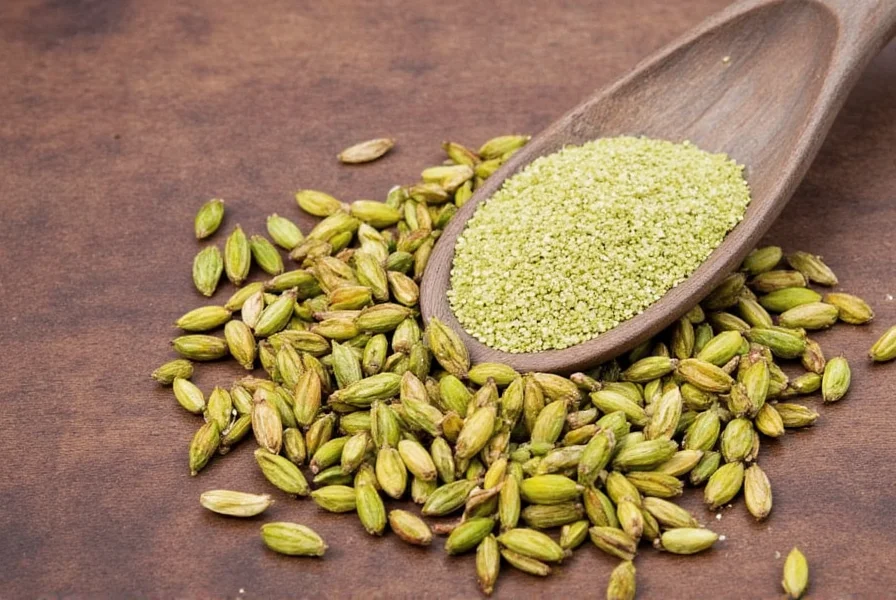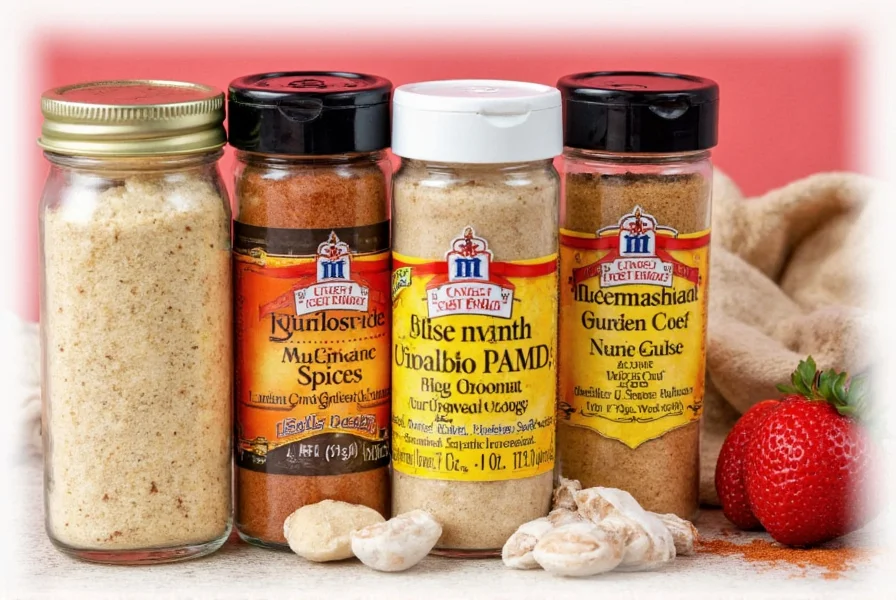If you're asking "Are McCormick spices gluten free?" the direct answer is: some are certified gluten-free, but not all. According to McCormick's official website and FDA guidelines, pure single spices like cinnamon or black pepper are naturally gluten-free, but many seasoning blends may contain gluten or have cross-contamination risks. Only products labeled "gluten-free" are certified safe for celiac disease.
This guide provides verified 2025 information based on FDA standards, third-party certifications, and McCormick's latest product data. We'll cover exactly which products are safe, how to check labels, and expert tips for gluten-free cooking.

McCormick Spices: Gluten-Free Facts by FDA Standards
The FDA requires gluten-free products to contain less than 20 parts per million (ppm) of gluten. McCormick certifies specific products through the Gluten-Free Certification Organization (GFCO), which tests for levels below 10 ppm. Always look for the GFCO logo on packaging.
| Product | Gluten-Free Status | Certification | Key Notes |
|---|---|---|---|
| Cajun Seasoning | Yes | GFCO Certified | Tested to <10 ppm gluten |
| Italian Seasoning Mix | Yes | GFCO Certified | Verified by third-party lab testing |
| Fajita Seasoning | Yes | GFCO Certified | Specifically formulated for gluten-free diets |
| Adobo Seasoning | Yes | GFCO Certified | Contains no wheat, barley, or rye ingredients |
| Taco Seasoning (regular) | No | Contains gluten | Includes wheat-derived maltodextrin |
| Taco Seasoning (gluten-free version) | Yes | GFCO Certified | Look for "gluten-free" on label |
| Gravy Master | No | Contains barley | Barley-based ingredients make it unsafe |
| Pure single spices (e.g., paprika, cumin) | Naturally gluten-free | Not certified | Safe for most; for celiac disease, choose GFCO-certified versions |
How to Check if Your McCormick Spice is Gluten-Free
Follow these steps to ensure safety:
- Look for the GFCO logo on packaging — this is the most reliable indicator.
- Check for "gluten-free" labeling — McCormick only uses this claim on certified products.
- Avoid "may contain wheat" warnings — even if the product doesn't contain gluten, cross-contamination risks exist.
- Visit McCormick's official gluten-free page for the latest verified list: mccormick.com/gluten-free
- Never rely on ingredient lists alone — some additives (like maltodextrin) may be wheat-derived.
Expert Tips for a Gluten-Free Spice Pantry
- Store certified gluten-free spices separately in labeled containers to avoid cross-contact.
- Make your own blends using single GFCO-certified spices for complete control.
- When dining out, ask restaurants to confirm their spice blends are gluten-free — many commercial blends contain hidden gluten.
- For celiac disease, only use products with GFCO certification — this ensures rigorous testing beyond FDA minimums.
Frequently Asked Questions
Are all McCormick spices gluten-free?
No. Only products explicitly labeled "gluten-free" or bearing the GFCO certification logo are safe for celiac disease. Pure single spices are naturally gluten-free but not always certified — for high-risk individuals, choose certified versions.
Which McCormick spices are certified gluten-free?
As of 2025, certified products include: Cajun Seasoning, Italian Seasoning Mix, Fajita Seasoning, Adobo Seasoning, and the gluten-free version of Taco Seasoning. Always verify via the official list since formulations change.
Does McCormick test for gluten contamination?
Yes. Certified products undergo third-party testing by GFCO to ensure levels below 10 ppm gluten. McCormick's manufacturing facilities follow strict protocols, but only certified products guarantee safety for celiac disease.
Can I trust McCormick's "gluten-free" claim with celiac disease?
Yes. GFCO certification requires FDA-compliant testing (less than 20 ppm gluten) and annual facility audits. For severe sensitivity, always choose certified products — unmarked "gluten-free" claims may not meet these standards.
Why does McCormick use maltodextrin in some blends?
Maltodextrin can be derived from wheat, corn, or potatoes. In non-certified blends, it's often wheat-based. Certified gluten-free products use corn-based maltodextrin and undergo rigorous testing to eliminate gluten traces.
What should I do if I'm unsure about a product?
Contact McCormick customer service with the product name and UPC code. Alternatively, use certified alternatives from brands like Simply Organic or Badia Spices, which specialize in gluten-free certification.











 浙公网安备
33010002000092号
浙公网安备
33010002000092号 浙B2-20120091-4
浙B2-20120091-4